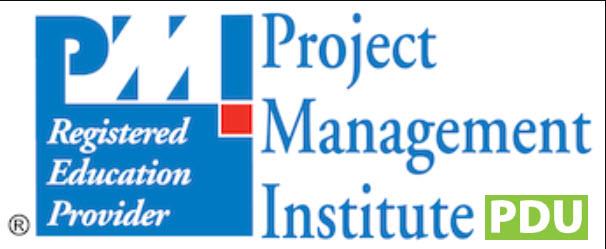Principles of Management

PRINCIPLES OF MANAGEMENT
What is Management?
Management is the art and science of planning, organizing, directing and controlling the acts of all the resources and converging to the attainment of the organization’s goals. The primary objective of management is to create a congenial and work healthy atmosphere where all the employees are motivated to achieve the organization’s goals. An organization structure guides all the employees to focus their work on achieving the organizational goals.
Levels of Management
Management levels refer to an organization's different layers of authority and responsibility. There are three levels with distinct roles and responsibilities:
Top-Level Management (Executive Management)
Roles: This top level has positions such as CEO, CFO, COO, and other C-suite executives.
Responsibilities: Top-level executives are entrusted with setting the high-level organization's strategy, establishing policies, and ensuring its long-term success. They often represent the organization to external stakeholders.
Mid-Level Management
Roles: Mid-level managers include department heads, division managers, and regional managers.
Responsibilities: Middle management is between top management and lower-level management. They implement the strategies and policies that the top management sets and ensure that their departments or divisions operate efficiently. Middle managers oversee day-to-day operations, allocate resources, and are often involved in decision-making within their areas of responsibility.
Lower-Level Management (First-Line Management)
Roles: This level includes supervisors, team leaders, and foremen.
Responsibilities: Lower-level managers are directly responsible for managing employees and overseeing daily operations at the ground level. They ensure that tasks are completed on time and according to standards, provide feedback and guidance to employees, and handle any immediate operational issues.
The fourteen principles of management
Henry Fayol is the father of modern management, and he coined fourteen principles. These principles are general and apply to any organization. The fourteen principles are:
Division of work: Henry affirms that productivity will be enhanced when the tasks are divided among the workforce. Division of work boosts the work's efficiency, accountability, responsibility, and speed.
Authority and responsibility: Henry firmly states that authority and responsibility should have a proper balance in the organization. Authority is the power to instruct, give orders, and give
Instructions: On the other hand, responsibility is fulfilling duties and standing by the consequences.
Discipline: Discipline ensures compliance, obedience, and orderly behavior.
Unity of command: Employees should receive commands only from one boss. If they receive commands from multiple bosses, there will be confusion on the prioritization of work.
Unity of direction: Henry states that all the employees working in an organization should have a common goal.
Subordination of individual interest: Henry states that employees should have the organizational goal first, not the individual one.
Remuneration: According to Henry, remuneration is an essential element that keeps employees motivated. Remuneration can have a monitory and non-monitory component, which should be decided based on his skills and qualifications. The hike in remuneration should be based on the efforts.
Centralization: The decision-making power is concentrated at the top management.
Scalar chain: As per Henry’s principle of scalar chain, there should be clear channels of communication from top to bottom from the lowest path defined.
Order: Henry’s order principle states that a company’s culture should be organized. People, processes, and other resources should be systematic and properly organized.
Equity: The equity principle states that all employees should be treated equally and respectfully. There should not be any discrimination between any employee.
Stability: The stability principle states that all employees should work in a stable environment and feel secure.
Initiative: Employees should be encouraged to take initiatives that bring innovation and creativity to the company. Initiatives enhance the morale of employees.
Esprit de Corps: Esprit de Corps supports unity and mutual support among the employees.
Conclusion:
The principles of management help any person at any level in any organization run a company efficiently and manage people and resources correctly. To understand more about management, enroll in our management course.
Find a course provider to learn PMP
Java training | J2EE training | J2EE Jboss training | Apache JMeter trainingTake the next step towards your professional goals in PMP
Don't hesitate to talk with our course advisor right now
Receive a call
Contact NowMake a call
+1-732-338-7323Take our FREE Skill Assessment Test to discover your strengths and earn a certificate upon completion.
Enroll for the next batch
PMP Hands-on Training with Job Placement
- Feb 23 2026
- Online
PMP
- Feb 24 2026
- Online
PMP Hands-on Training with Job Placement
- Feb 25 2026
- Online
PMP
- Feb 26 2026
- Online
PMP Hands-on Training with Job Placement
- Feb 27 2026
- Online
Related blogs on PMP to learn more

What are the 5 phases of project management?
A streamlined approach to ensure project success by breaking it into five essential stages: Initiation, Planning, Execution, Monitoring & Controlling, and Closing. Each phase builds on the other, guiding the team from concept to completion with clear

How a PMP Certification Boosts Your Salary Potential in the USA
In the competitive landscape of project management, obtaining a Project Management Professional (PMP) certification can be a transformative step for your career. This globally recognized credential validates your skills and knowledge and significantl

How PMP Credential Positively Impacts Your Salary in the USA
In the competitive landscape of project management, obtaining a Project Management Professional (PMP) certification can be a transformative step for your career.

Guide to Resources for Product Managers
Navigating the world of product management can be challenging, especially for newcomers. This guide will equip you with top-trending resources to enhance your skills and knowledge as a product manager.

How did I successfully complete PMP certification course?
Our student's review of how they successfully completed PMP Certification course.

Top 10 Project Management Tools for Any Task
Explore the top 10 project management tools for any task and delve into the pros and cons of project management tools, empowering you to make informed decisions for your project management needs.

What are the qualities an IT project manager should have?
Top five qualities should be an IT project manager’s asset The role of an IT project manager is to plan, monitor, manage, and strategize the project and the team. They are supposed to accomplish the given task within a deadline of time and cost. The

What are PDUs -How to earn PDUs for PMP
What are PDUs? PDUs are abbreviation for Professional Development Units, were a one hour is blocked for learning, teaching and volunteering. How to earn PDUs for PMP renewal? There are two ways to earn PDUs for PMP renewal and they are Education PDUs

List of Best New York City Project Management Certification Training Providers
In today’s competitive job market, credentials matter more than ever. With Project Management Professional (PMP)® credentials in NYC you are more marketable also you will have access to better opportunities. Project Management Certification NYC ensur

The world is full of PMP, Get to Know Project Management Professional Types
Are you going to become a PMP, Choose which is your PMP Certificate More than 75,000 managers across the globe are certified with PMP, Project Management Professional. Project management professional is one of the world’s leading and most acclaimed
Latest blogs on technology to explore

Drug Safety & Pharmacovigilance: Your 2026 Career Passport to a Booming Healthcare Industry!
Why This Course Is the Hottest Ticket for Science Grads & Healthcare Pros (No Lab Coat Required!)" The Exploding Demand for Drug Safety Experts "Did you know? The global pharmacovigilance market is set to hit $12.5B by 2026 (Grand View Research, 202

Launch Your Tech Career: Why Mastering AWS Foundation is Your Golden Ticket in 2026
There’s one skill that can open all those doors — Amazon Web Services (AWS) Foundation

Data Science in 2026: The Hottest Skill of the Decade (And How Sulekha IT Services Helps You Master It!)
Data Science: The Career that’s everywhere—and Nowhere Near Slowing Down "From Netflix recommendations to self-driving cars, data science is the secret sauce behind the tech you use every day. And here’s the kicker: The U.S. alone will have 11.5 mill

Salesforce Admin in 2026: The Career Goldmine You Didn’t Know You Needed (And How to Break In!)
The Salesforce Boom: Why Admins Are in Crazy Demand "Did you know? Salesforce is the 1 CRM platform worldwide, used by 150,000+ companies—including giants like Amazon, Coca-Cola, and Spotify (Salesforce, 2025). And here’s the kicker: Every single one

Python Power: Why 2026 Belongs to Coders Who Think in Python
If the past decade was about learning to code, the next one is about coding smarter. And in 2026, the smartest move for any IT enthusiast is learning Python — the language that powers AI models, automates the web, and drives data decisions across ind

The Tableau Revolution of 2025
"In a world drowning in data, companies aren’t just looking for analysts—they’re hunting for storytellers who can turn numbers into decisions. Enter Tableau, the #1 data visualization tool used by 86% of Fortune 500 companies (Tableau, 2024). Whether

From Student to AI Pro: What Does Prompt Engineering Entail and How Do You Start?
Explore the growing field of prompt engineering, a vital skill for AI enthusiasts. Learn how to craft optimized prompts for tools like ChatGPT and Gemini, and discover the career opportunities and skills needed to succeed in this fast-evolving indust

How Security Classification Guides Strengthen Data Protection in Modern Cybersecurity
A Security Classification Guide (SCG) defines data protection standards, ensuring sensitive information is handled securely across all levels. By outlining confidentiality, access controls, and declassification procedures, SCGs strengthen cybersecuri

Artificial Intelligence – A Growing Field of Study for Modern Learners
Artificial Intelligence is becoming a top study choice due to high job demand and future scope. This blog explains key subjects, career opportunities, and a simple AI study roadmap to help beginners start learning and build a strong career in the AI

Java in 2026: Why This ‘Old’ Language Is Still Your Golden Ticket to a Tech Career (And Where to Learn It!
Think Java is old news? Think again! 90% of Fortune 500 companies (yes, including Google, Amazon, and Netflix) run on Java (Oracle, 2025). From Android apps to banking systems, Java is the backbone of tech—and Sulekha IT Services is your fast track t